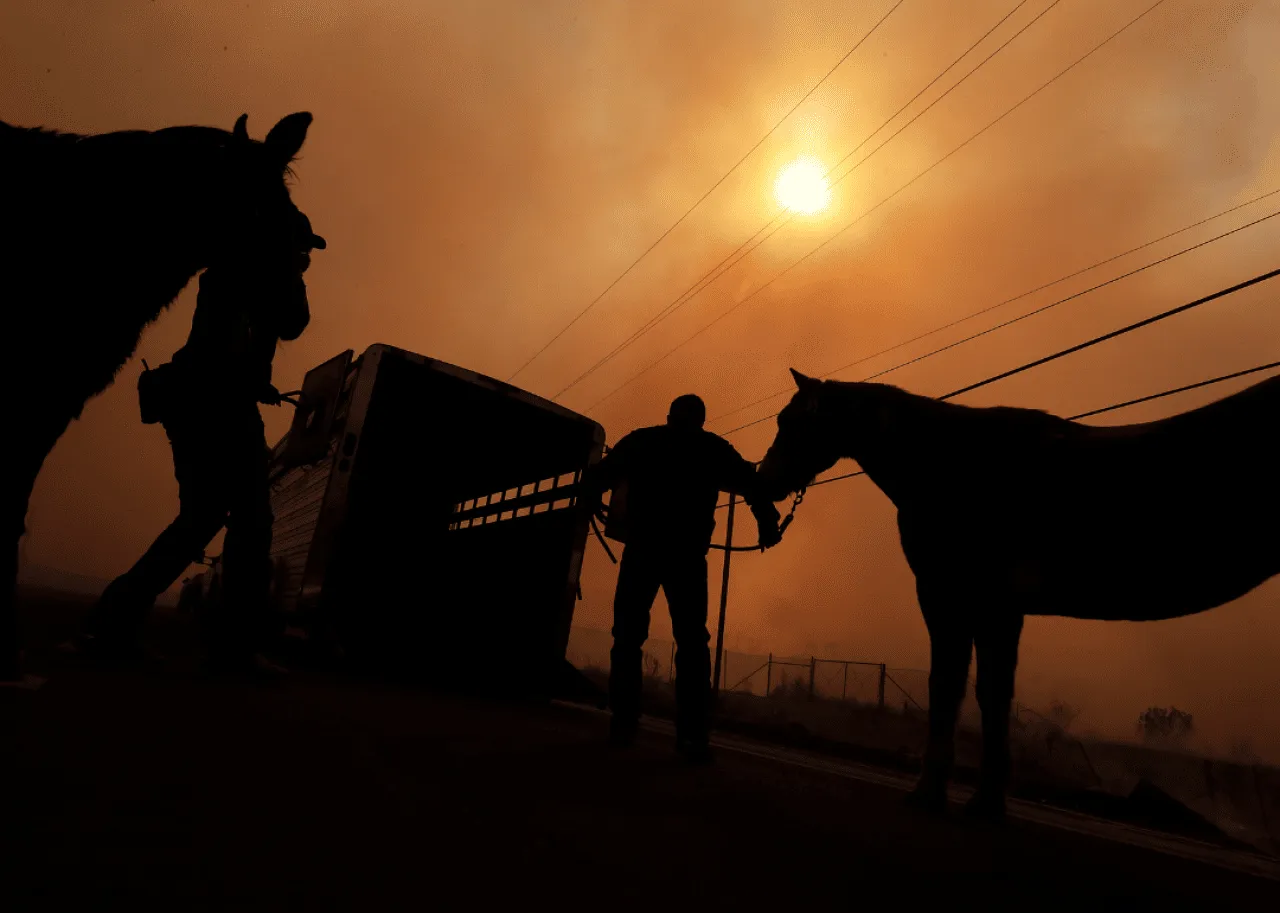Is your pet part of your disaster plan?
Pets

Audio By Carbonatix
By Andrea Vale, Stacker

Is your pet part of your disaster plan?
"If it isn't safe for you, it isn't safe for your pets" is an adage that bears repeating, especially when faced with the unexpected.
You've likely been inundated with all kinds of disaster plans: what to do in case of floods, wildfires, hurricanes, and the like. That's especially true today, when climate change has caused instances of natural disasters to increase dramatically. Last year saw a record 28 major climate and weather events in the U.S., including wildfires, cold waves, droughts, floods, tornadoes, and cyclones.
These plans seemingly cover all the bases, but they often leave out one question: What about our pets?
With all of our planning and preparation, it can be easy to forget that our pets need to be included as well. It's important to think about how to safely evacuate our animals and keep them out of further danger.
Amid the rise in extreme weather events, Pettable put together a guide to help pet parents prepare for an emergency using guidance from the American Society for the Prevention of Cruelty to Animals, the American National Red Cross, and the American Veterinary Medical Association. From packing an easily accessible to-go bag to arranging insurance and proof of ownership in advance, there are many steps pet owners can take to ensure their animals stay safe—even well ahead of an emergency.
Get ready long before disaster happens
Being prepared starts long before signs of bad weather. It begins every time you update your pet's various documentation. Ensuring you have up-to-date essentials can include proof of ownership; a list of emergency contacts, like your veterinarian or alternative caretakers for your pet; a comprehensive insurance policy; and, if helpful, a to-do list to help you stay calm, directed, and clear-headed amid unexpected chaos. (The ASPCA even has a disaster prep checklist that covers the essentials in case the worst strikes.) Print out copies of these documents to have handy, and keep them in a waterproof folder.
There are many other steps you can take far ahead of time to prepare for a smooth, well-rehearsed plan of action during an emergency.
Always keep your pet's identification up to date. A physical ID tag should include not only your pet's information but also your contact information and any important medical needs. Microchips can be a more permanent option to ensure shelters and strangers can identify your pet and you as the owner.
Similarly, be sure to keep up with your pet's vaccinations. You never know what environment you may have to temporarily house them in during an emergency. Practice transporting your pet in its carrier so that if a disaster strikes, it'll be used to such travels so that getting on the road is a calm and quick process.
Keep a packed to-go bag handy with everything you may need for several days of travel. This includes food, medications, first aid, a traveling carrier, extra leashes and collars, and whatever is required to ensure your pet can live comfortably and safely for an extended period. Ensure that everyone in the family knows where the to-go bag is and that it is kept somewhere easily accessible in an emergency.
What to do when emergencies happen
If and when an emergency does arrive, the actions you take should be the final culmination of preparations that are already in place.
Bring your pets inside at the first sign of bad weather; this will ensure they don't accidentally become confused and flee. For larger animals, like horses or livestock, it is usually better to evacuate them on a precautionary, proactive basis well ahead of time since it will be difficult to transport them in the thick of an ongoing emergency. It can also be helpful to grab your pet's blanket or other comfort items to make sure they feel comfortable and safe during an otherwise stressful and unfamiliar situation.
Never leave your pets at home if you're fleeing a natural disaster—the house will not be a safe location for them. Instead, have a safe haven identified where you can keep your pet out of harm's way. This may be a local animal shelter, a nearby hotel that allows animals, or a relative or friend who can agree to be a designated caretaker. It's important to note that many emergency shelters do not accept pets, except for service animals. Some hotels may make an exception to accepting animals during an emergency weather event; it's a good idea to call ahead and ask.
Tailor your plans for your pet
It's worth noting that, though these are general steps, one should also look up specific considerations for their specific type of pet. For instance, horse owners should routinely practice getting the horse into a trailer quickly in case the need to evacuate strikes. Birds have a sensitive feeding schedule, so having a timed feeder in case you are separated can be critical. Reptiles may benefit from you bringing along a bowl to fill with water and allow them to soak in.
Of course, at the end of the day, no one knows your pet as well as you. Take the time to talk to your veterinarian about any specific conditions to consider or other characteristics you may want to prepare for. It can be easy to push off planning for a disaster that may not even come—but take the time now to prepare. If an emergency does happen, you'll be ready, and, best of all, your pets will be happy, healthy, and comfortable.
Story editing by Carren Jao. Additional editing by Kelly Glass. Copy editing by Paris Close. Photo selection by Lacy Kerrick.
This story was produced by Mechanism Ventures and was produced and distributed in partnership with Stacker.

























